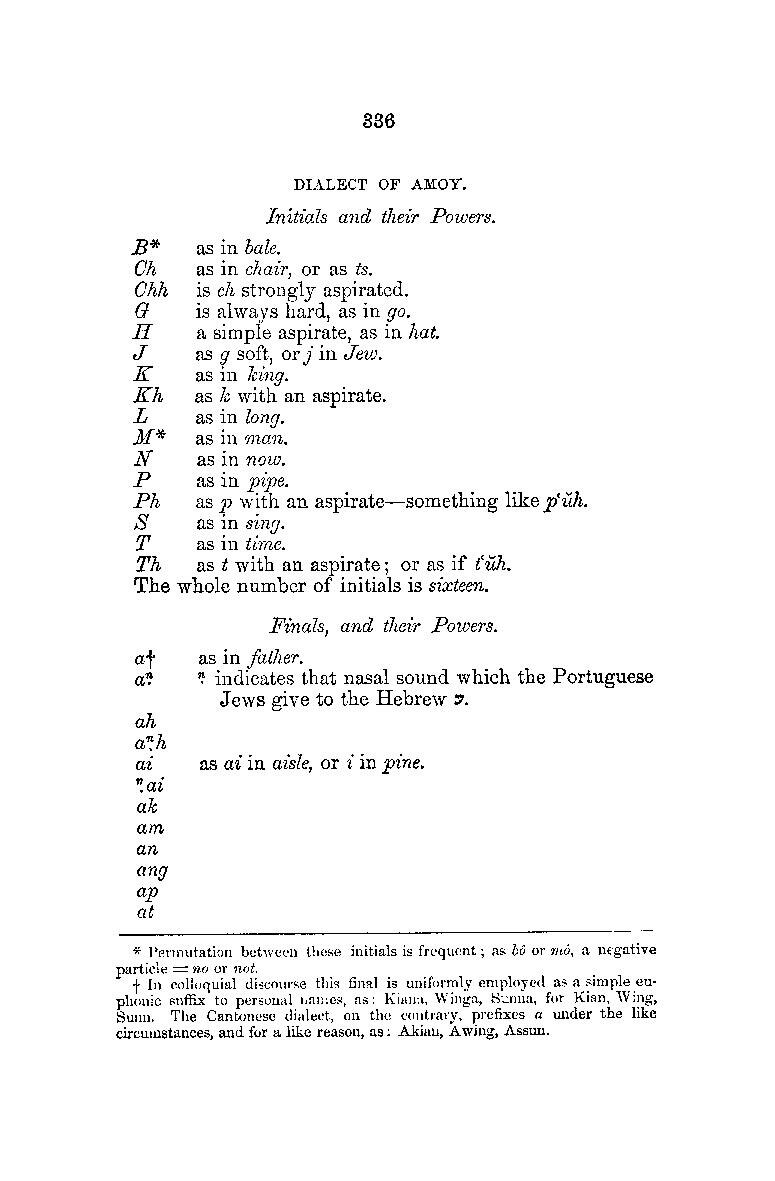There was a problem when proofreading this page.
336
Dialect of Amoy.
| Initials and their Powers. | |
|---|---|
| B[1] | as in bale. |
| Ch | as in chair, or as ts. |
| Chh | is ch strongly aspirated. |
| G | is always hard, as in go. |
| H | as simple aspirate, as in hat. |
| J | as g soft, or j in Jew. |
| K | as in king. |
| L | as in long. |
| M[1] | as in man. |
| N | as in now. |
| P | as in pipe. |
| Ph | as p with an aspirate—something like p'ŭh. |
| S | as in sing. |
| T | as in time. |
| Th | as t with an aspirate; or as if t'ŭh. |
| The whole number of initials is sixteen. | |
| Finals, and their Powers. | |
| a[2] | as in father. |
| aⁿ | ⁿ indicates that nasal sound which the Portuguese Jews give to the Hebrew ( |
| ah | |
| aⁿh | |
| ai | as ai in aisle, or i in pine. |
| ⁿai | |
| ak | |
| am | |
| an | |
| ang | |
| ap | |
| at | |
- ↑ 1.0 1.1 Permutation between these initials is frequent; as bô or mô, a negative particle=no or not.
- ↑ In colloquial discourse this final is uniformly employed as a simple euphonic suffix to personal names, as: Kiana, Winga, Suma, for Kian, Wing, Sum. The Cantonese dialect, on the contrary, prefixes a under the like circumstances, and for a like reason, as: Akian, Awing, Assun.
